Physics is good for your mind, believes Andrey Kudlis, a junior researcher at ITMO’s School of Physics and Engineering. He became interested in science when he was still in 10th grade and then he decided to devote his life to it. Now, Andrey is a researcher and a physics lecturer who helps his students immerse into the world of science from the very start. Not so long ago, he developed a project that lets students study various phenomena experimentally and learn how to write papers for top-rated international journals. The project was highly acclaimed by the expert board of the ITMO.EduLeaders contest. ITMO.NEWS talked to Andrey Kudlis to learn more about what he does to motivate his students and how science applies to everyday life.
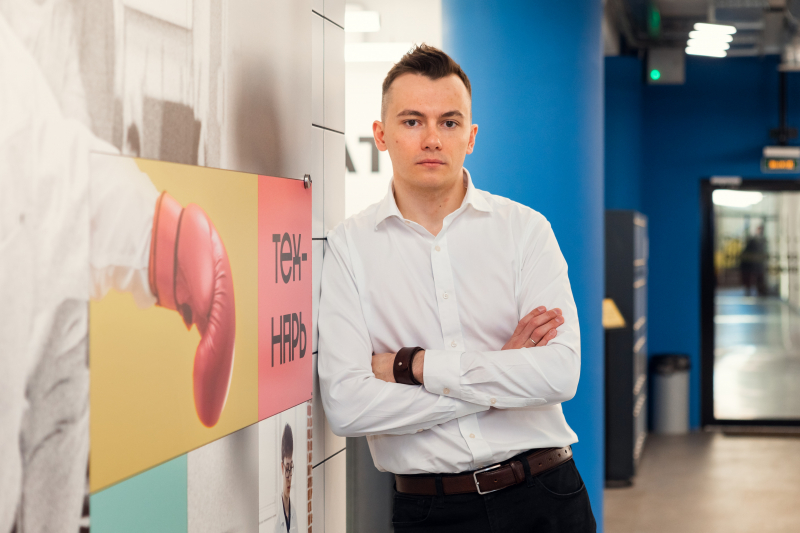
Andrey Kudlis. Photo by Dmitry Grigoryev / ITMO.NEWS
You’ve studied physics for nine years (Bachelor’s, Master’s, and PhD) at St. Petersburg State University. What made you choose this field?
By the end of 10th grade, I realized that you can’t achieve your goals while neglecting your intellectual development. What’s more, I’ve always thought that growth can only come through struggle, not easy tasks. To get my brain cells firing, I could study mathematics but I didn’t genuinely enjoy it. Physics, though, was a different story, so I went for it. Plus, it is a fascinating and enlightening field that doesn’t get boring.
After you received your PhD, you didn’t stay at your alma mater but started working at ITMO. Why so?
The Faculty of Physics and Engineering (now the School of Physics and Engineering – Ed.), which was established six years ago and was transformed last year, is a great place. People who work here showed that it’s possible to create a competitive research and education department with good salaries and young teams in Russia. The school’s staff produces truly exciting studies that draw the attention of domestic and international scientists.
I like how it all works here. Our school can be compared to a ship with numerous compartments. Let’s say there are 13 compartments on our ship. With even four or five flooded, we’ll still keep sailing. By this, I mean grants that make up our school’s budget. If some researchers experience difficulties and setbacks, and others do a good job, the system continues to run smoothly. This, however, is impossible unless most staff members work responsibly.
I’m also happy that the university actually attracts PR specialists to promote science and seek funding. This is something that most physicists don’t take seriously, although it’s beyond important.
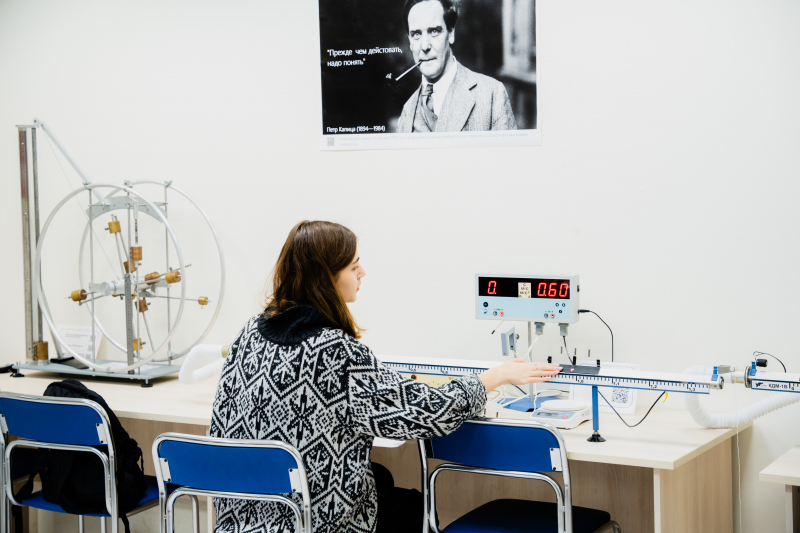
ITMO’s School of Physics and Engineering. Photo by ITMO.NEWS
What fields do you enjoy most?
When I studied at St. Petersburg State University, I was engaged in my supervisor’s field, that is, physics of critical behaviors. Here’s how I can explain it in simple terms. There are such materials as ferromagnetics that exhibit spontaneous magnetization. What it means is that this material consists of two small magnets, sources of magnetic fields, that typically face one direction.
In case they don’t, there’s no magnetization and such materials are called paramagnetics. However, the temperature rise makes magnets shift their orientation, thus deviating more and more from a certain route.
Once the material reaches the so-called Curie Point, the magnetization vanishes causing magnets to change direction randomly. This process is called a second-order phase transition. You can observe this phenomenon when heating a magnet. Take a lighter and heat a magnet on your fridge and you’ll see that it will fall off – all due to this physical process. Thus, physics of critical behaviors describes the properties of physical systems within the Curie Point.
However, I firmly believe that if you have a relevant background and know some experts who understand what's going on in science, you’ll have no trouble switching to a new field. When I got into ITMO, I started to work in fields I had no experience in whatsoever. I study the physics of semiconductors, namely, I describe the behavior of physical systems. In other words, I do numerical calculations that can be widely applied in theoretical physics.
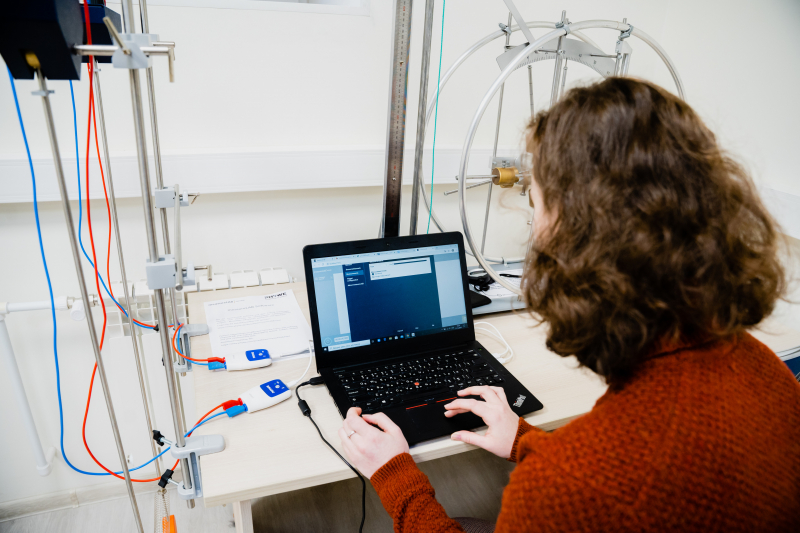
ITMO’s School of Physics and Engineering. Photo by ITMO.NEWS
How did you start teaching?
I joined ITMO’s School of Physics and Engineering in November 2019. At first, I taught general physics to students from other specializations, for instance, IT majors. Everything went well, so I started teaching Bachelor’s students specializing in physics next semester. Now, I have practical classes with two groups and also deliver a special course meant to help students expand their horizons. For instance, I show them how to apply quantum field theory in high energy physics and condensed matter physics, too.
At our school, you can either do science, teach, or do both. Depending on what you choose, you will have a different workload in research or teaching. I went for the third option, and I’m fully happy with my decision.
Here’s how I feel about my work: I appreciate the place I work at and I want to be appreciated in return. To get it, I need to contribute to my faculty's work . For instance, I can teach well and thus help the university attract even more prospective students who will learn about its great lectures and want to get in because of them. They can then become qualified researchers and specialists in their fields who will bring in new investors and help the faculty and the university in general grow. This is clearly a win-win situation.
Yet teaching others is a great art. You can’t just go to the class and say something, you have to prepare for your lectures and seminars, as well as work out each assignment you’re about to offer. It takes a lot of time!
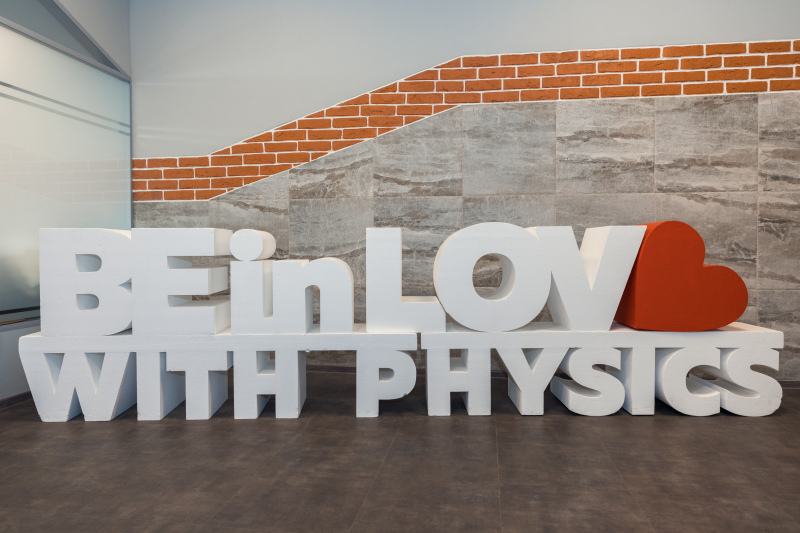
ITMO’s School of Physics and Engineering. Photo by ITMO.NEWS
How do you manage to motivate your students to study physics even if it’s not their specialization?
Personally, I never tell my students that they will fail if they don’t become physicists or give up science. Students come to us to learn how to think and to do so, they can’t but work hard. If they don’t know why they should study physics, mathematical analysis, or whatever, they should remember that all these disciplines teach them system thinking.
Why do you think many big name entrepreneurs studied physics? As a physicist would say, if you want to manage finances, you should be able to solve multiparameter problems. What’s more, when an employer sees that their candidate once wrote a thesis on a topic that 99% of people don’t understand, they’ll be assured that this person will tackle any industrial challenge, as well. That’s why I encourage students to fuel their minds with physics and mathematics.
Your project My first research project on studying hydro-aerodynamic phenomena received an award at the ITMO.EduLeaders contest. How did you come up with the idea and what can students learn from it?
I did projects with my first-year students so that they could acquire skills for their future research endeavors and write drafts of their articles. This makes me think of the first two years of my Bachelor’s. Back then, I didn’t do science at all and didn’t even know how research is done. ITMO students involved in project activities have a different experience. They are well-equipped: they can develop materials (relying on the fundamentals of scientific ethics) and know at least the basics of Python, C++, or Mathematica.
My project focuses on hydrodynamics in particular. This is a topic that students get familiar with only by the end of their mechanics course so it can pass nearly unnoticed. Our first team, which studied aerodynamic effects, produced different models of wing profiles via 3D printing and conducted experiments with the use of a garden vacuum cleaner with a blowing mode to study well-known physical laws. For instance, they demonstrated how a wing’s lift force works in an oncoming flow. Whereas the second one looked into fluid dynamics based on the Magnus effect and the Venturi effect also using the tools they had on hand. I was responsible for tasking, curated projects, and taught students how to do research.
Projects like these allow students to faster integrate into their research teams and start off with their own projects by the time they have to select their supervisors at the end of their second year.
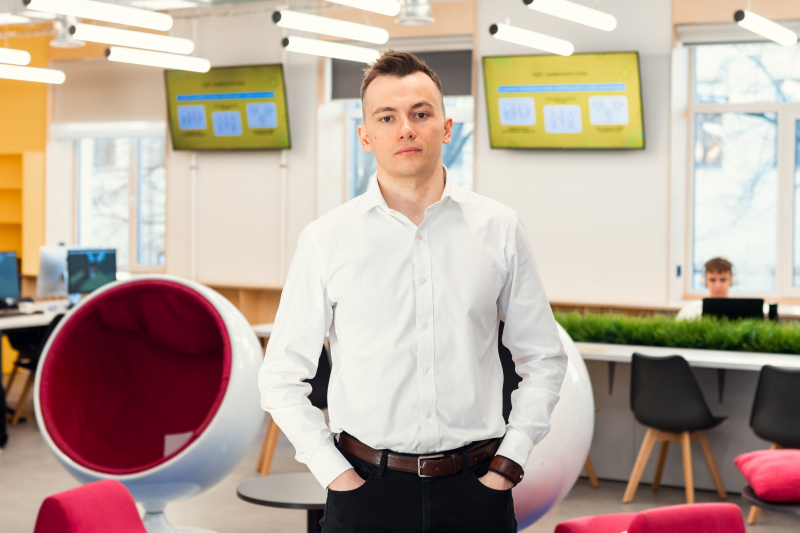
Andrey Kudlis. Photo by Dmitry Grigoryev / ITMO.NEWS
What do you like to do in your spare time?
I have quite a few hobbies. I enjoy doing something with my hands if it doesn’t take an eternity though. I’m keen on architecture and construction, especially woodworking. So when I see something, I immediately start wondering if I can create it myself and what I need to achieve to do so. I also do some wakeboarding and jogging, as well as aggressive skating in summer and snowboarding in winter.
Alena Mamaeva
Journalist
Marina Belyaeva
Translator
